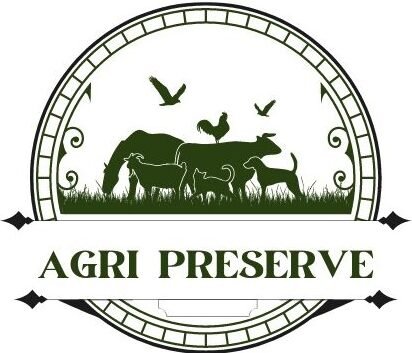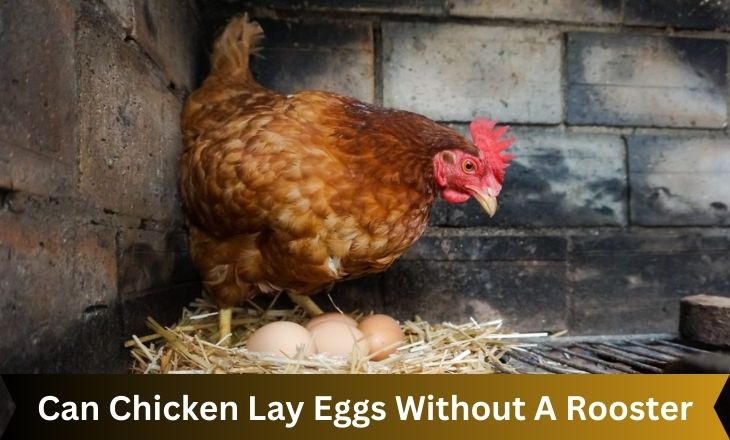Can Chicken Lay Eggs Without A Rooster? This question has puzzled many chicken owners. In this article, we will explain how hens can lay eggs without a rooster.
Let’s explore the science behind chicken reproduction to understand this mystery.
Can Chicken Lay Eggs Without A Rooster – Agri Preserve
Hens can lay eggs without a rooster. They lay eggs naturally as part of their reproductive cycle, regardless of a rooster being there. The amount of daylight they get triggers egg production. Without a rooster, the eggs won’t hatch into chicks. These unfertilized eggs can still be eaten. Some chicken keepers only have hens for eggs.
Why Have A Rooster With Hens
Having a rooster with hens can bring many benefits. Roosters protect the hens by warning them about dangers. Having a rooster with hens can make your flock more interesting and enjoyable.

Keep The Peace
Roosters are important for keeping order in the flock by protecting and leading the hens. Humans can learn from this relationship. We should focus on working together and avoiding conflicts.
By showing leadership, protection, and diplomacy in our interactions, we can help create a peaceful world.
Protecting The Flock
In poultry farming, roosters protect hens by staying alert and sounding alarms when needed. Roosters warn others and guide hens to safety. Hens provide eggs and companionship, while roosters defend the flock from predators.
This partnership demonstrates how birds form strong bonds for protection, showing animals have a sense of responsibility and care for each other’s safety.
Fertilized Eggs
Fertilized eggs start life, which are made when a rooster and hen mate. Fertilization mixes genes from both parents to make a new life. This leads to an embryo forming in the egg.
Roosters play a key role in fertilizing eggs. Without a rooster, hens lay eggs that can’t become chicks. Nature has a smart system for making new animals through roosters and hens working together.
Fertilized eggs show the beauty and complexity of life. Each egg has the potential for new life and growth.
Roosters and hens working together is a great example of how different things can make something amazing. Nature is smart in creating these partnerships for the future.
Maintaining Order
In the poultry world, a rooster always stays with hens for a reason. It’s not just for fun; there’s a deeper purpose. The rooster is more than just a leader; it protects, organizes, and keeps the group stable. This helps the flock stay peaceful and healthy. The rooster also shows the importance of having a clear order in the group.
When everyone knows their place, there are fewer fights. Just like in nature, where every species has a job, having clear rules in a group is important for working well together. The relationship between roosters and hens teaches us that order comes from having clear roles, respecting each other, and communicating effectively.
Rooster Dance
Male roosters perform energetic dances to attract female hens. They show off their colourful feathers and strut confidently to impress the hens. The dance’s synchronized movements and rhythmic footwork captivate the hens.
The dance also communicates the rooster’s health, strength, and genetic fitness to potential mates. The intensity of the dance shows the rooster’s dominance in the flock’s hierarchy. Rooster dances are not just entertaining but also offer insights into animal behaviour and social structures.
They demonstrate the importance of elaborate displays in mating rituals and evolutionary adaptations for successful reproduction. The vibrant colours, graceful movements, and communication in rooster dances make them interesting to observe and study.
Mating Habits
Roosters are always with hens for mating. Roosters attract hens with their colourful feathers and crowing. They show they are ready to mate by dancing, displaying feathers, and giving food. Some female birds mate with different males to have diverse offspring.
Environmental factors like resources and competition can affect bird mating habits. Nature uses complex behaviours to ensure species continue.
Digging For Treasure
We dig for treasure because we want to find something valuable and exciting. It’s like a rooster looking for food with its hen – our search for treasure comes from our natural curiosity. We are fascinated by the idea of finding hidden treasures buried underground. As we dig, we not only find physical treasures but also learn more about ourselves.
Digging for treasure is like exploring our own thoughts and feelings. Like a rooster pecking at the ground with its hen, we keep searching for meaning and purpose. We know that what we discover can be more important than just money. The journey of finding treasure, whether real or symbolic, is just as important as what we find.
Like a rooster and its hen working together to find food, we can rely on others for help and advice as we search for treasures within ourselves and in the world.
Feed Me More
Feed Me More reminds us to nourish our minds and bodies with positivity, knowledge, and good food. Just like a rooster cares for the hen, we should prioritize self-care and relationships. The phrase also encourages us to try new things and grow. By seeking opportunities for fulfilment, we can enrich our lives.
As the rooster looks after its flock, we should care for ourselves and others with dedication. Feed Me More reminds us that abundance is possible if we actively pursue it. Let’s nurture our bodies and minds with purpose, like the rooster cares for the hen.

Can You Eat Fertilized Eggs
Fertilized eggs in food can be a controversial topic. Some people think eating them is safe and healthy, while others may feel uncomfortable about it. In many cultures, people eat fertilized eggs without any negative health effects.
The important thing to think about is how long the egg has been developing. If it’s been developing for a while, it might have a partially formed chick inside, which some people may not like. But if you eat the egg soon after it’s laid, it probably won’t have any visible signs of development.
Ultimately, whether you eat fertilized eggs depends on your personal preference and cultural beliefs. With proper storage and handling, fertilized eggs can be a good source of protein and nutrients without causing any health problems.
Do Roosters Have Sperm
Roosters make sperm to fertilize eggs laid by hens. The sperm is transferred to the hen during mating and fertilizes an egg in her body.
Roosters have a special way of mating called the cloacal kiss, where the male and female press their cloacas together to transfer sperm. This efficient method shows how birds’ reproduction has evolved over time.
Knowing about roosters’ sperm can help us understand their reproduction and behaviour. It’s interesting to think about how these tiny cells help create new life on the farm or in the wild.
Why Do Roosters Crow
Roosters crow to show who’s boss and talk to their friends. Each rooster has a unique crow that helps them be recognized in their group. Researchers say things like temperature and light can affect when and how often roosters crow.
They usually crow in the morning to start the day, but they also crow at other times to chat with other birds or react to stuff around them. This shows that roosters are smart and pay attention to what’s happening. Crowing is a way for roosters to communicate and show how clever they are.
Do Roosters Have Balls
Roosters, like male birds, have testes inside their bodies near the kidneys. This helps them fly better by reducing drag and weight.
Roosters have small reproductive organs called testes that make sperm for fertilization. Roosters use a mating dance to attract hens, not physical displays of dominance. Their testes change size with the season and hormones.
Roosters are important for reproduction and preserving bird species, showing how diverse and fascinating nature is.

Conclusion
Chickens can lay eggs without the presence of a rooster. The process of egg-laying is a natural and independent biological function for hens.
While fertilization by a rooster is needed for the eggs to develop into chicks, it is not necessary to produce unfertilized eggs. Understanding this distinction can help dispel common myths and misconceptions surrounding chicken reproduction.
Therefore, whether you have a rooster or not, your hens will continue to lay eggs regularly. Next time you enjoy a delicious omelette or scrambled eggs, remember that it’s all thanks to the hard work of our feathered friends!

